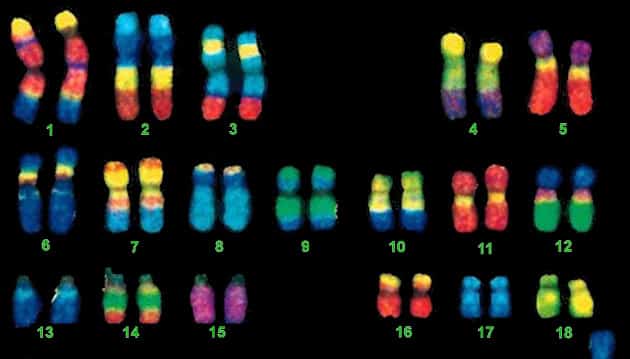Study Explores Protective Potential of Y Chromosome Against Leukemia
Acute myeloid leukemia (AML), an aggressive blood cancer, develops in cells in the bone marrow and leads to life-threatening infections and bleeding. Now, researchers at the Wellcome Sanger Institute and the University of Cambridge in a research studying cancer have discovered that Y-chromosome gene protects against the development of AML.
It’s known that women have two X chromosomes whereas men have one X and one Y chromosome. Further, X and Y chromosomes share many genes, but few of these genes, including UTY, are exclusive to the Y chromosome.
These genes specific to the Y chromosome were assumed to solely contain the genetic information related to the male sexual characteristics, but this study has now shed light on the various other hitherto unknown functions of these genes. And this observation changes the way the Y chromosome is viewed and improves understanding of how AML and other cancers develop.
In the course of their study, the team studied the UTX gene in human cells and in mice to try to understand its role in AML. They found a new mechanism for how loss of UTX leads to AML.
They discovered UTX’s role as a common scaffold
, bringing together a large number of regulatory proteins that control the access portal to DNA and gene expression, a function that can also be carried out by UTY. And when UTX/UTY are missing, these proteins can’t regulate gene expression correctly and cancer growth becomes more likely.“This is the first Y chromosome-specific gene that protects against AML. Previously it had been suggested that the only function of the Y chromosome is in treating male sexual characteristics, but our results indicate that the Y chromosome could also protect against AML and other cancers.” Said Dr. Malgorzata Gozdecka, the first author on the study from the Wellcome Sanger Institute.
“It is known that men often lose the Y chromosome from their cells as they age, however, the significance of this was unclear. Our study strengthens the argument that loss of the Y chromosome can increase the risk of cancer and describes a mechanism for how this may happen.” Professor Brian Huntly, joint project leader from the Wellcome-MRC Cambridge Stem Cell Institute, and Consultant Haematologist, at Cambridge University Hospitals NHS Trust, said.






























